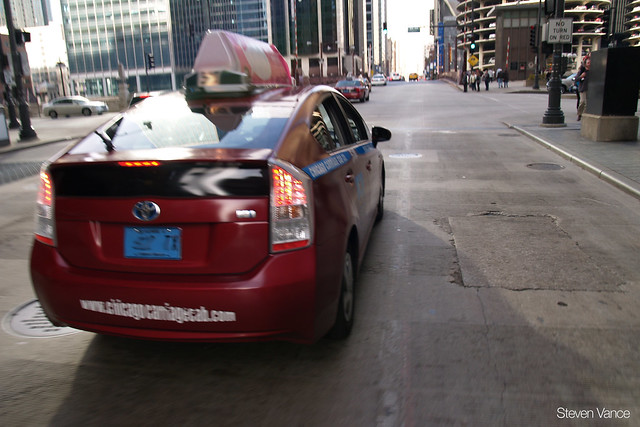The taxi driven by the man who harassed me and against whom I testified in an administrative hearing.
This is the story of my being harassed by a taxi driver while cycling in downtown Chicago the day before Thanksgiving in November 2011. I was riding from Grant Park to meet my mother and sister for lunch at Xoco (449 N Clark). It’s also a set of loose instructions on curbing car culture.
The article is divided into three sections: the incident, the hearing, and the results. I am not revealing the taxi driver’s name or cab number: he’s already had his hearing and received due process; additionally, he may not always drive the same cab number. On the day of the incident, November 25, 2011, he leased his cab from the Chicago Carriage Cab Corp.
If you feel unsafe from the behaviors of a taxi driver, call 311 immediately after composing yourself and ask to file a complaint against a taxicab driver. You must have the time, location, and taxi number. If your immediate safety is threatened, call 911 first.
Incident
This is the description I submitted to the Chicago Department of Business Affairs and Consumer Protection, who regulate public chauffeurs. Continue reading Calling 311 to report dangerous taxicab drivers works
